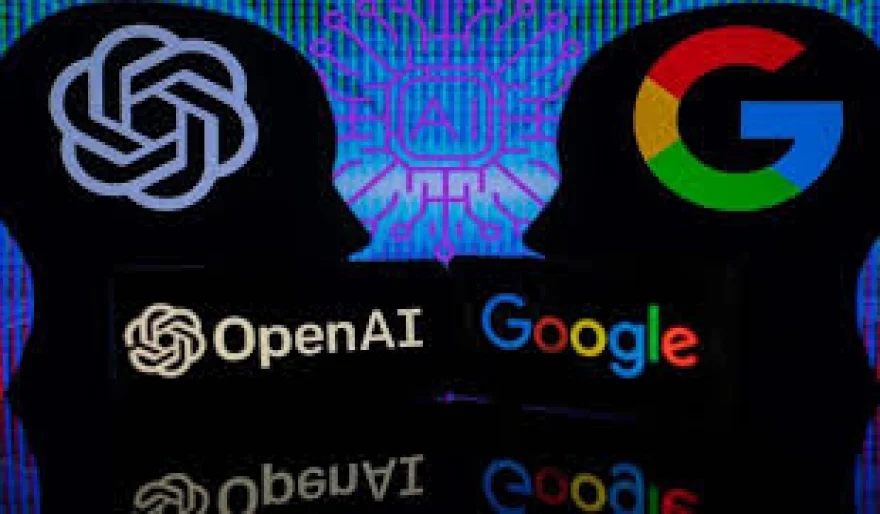Stay Ahead of the Curve
Latest AI news, expert analysis, bold opinions, and key trends — delivered to your inbox.
Microsoft partners with OpenAI due to concerns over Google's AI dominance.
4 min read Microsoft's massive partnership with OpenAI, a prominent AI research lab, has stirred speculation. An internal email disclosed Microsoft's Chief Technology Officer expressing deep concern about Google's AI capabilities. This raises the question: is Microsoft's action fueled by apprehension over Google's dominance, or is there a more strategic motive behind it? May 02, 2024 06:22
Microsoft's multi-year, multi-billion dollar partnership with OpenAI, a leading research company in artificial intelligence (AI), has raised eyebrows. An internal email revealed by the Justice Department during an antitrust case against Google suggests Microsoft's primary motivation might have been fear of falling behind Google in the AI race. Let's delve deeper into this strategic move.
The Google Factor: A Looming Threat?
The internal email reportedly shows that Microsoft's Chief Technology Officer was "very, very worried" about the capabilities of Google's AI models. This concern aligns with Google's well-established presence in AI research, with advancements like DeepMind and its dominance in areas like natural language processing and search algorithms.
Here's how Google's AI prowess might have influenced Microsoft's decision:
- Closing the Gap: Partnering with OpenAI, known for its powerful language models like GPT-3, could accelerate Microsoft's AI development, allowing them to compete more effectively with Google.
- Securing Expertise: Gaining access to OpenAI's talent pool of researchers and engineers could bolster Microsoft's own AI teams.
- Diversifying Strategies: Partnering with OpenAI complements Microsoft's existing AI research efforts, potentially leading to a more comprehensive and competitive AI portfolio.
Beyond Fear: Strategic Advantages of the Partnership
While fear of Google might have been a factor, the partnership offers strategic advantages for Microsoft beyond just catching up:
- Focus on Specific Areas: Microsoft can leverage OpenAI's expertise in areas like natural language processing to enhance its own products like Microsoft Office or Azure cloud services.
- Innovation through Collaboration: The combined efforts of Microsoft and OpenAI could lead to new and innovative AI solutions across various industries.
- Ethical Considerations: OpenAI is known for its focus on responsible AI development, which aligns with Microsoft's own commitment to ethical AI practices.
The Future of AI Collaboration
The Microsoft-OpenAI partnership highlights a growing trend: collaboration in the AI landscape. Here's what this might mean for the future:
- Faster Advancements: Collaboration between leading AI research groups could accelerate the pace of AI development, leading to more powerful and versatile AI tools.
- Focus on Specific Applications: Partnerships might allow companies to focus their AI efforts on specific industry applications, leading to more targeted AI solutions.
- Ethical Considerations Remain Paramount: Collaboration doesn't negate the need for responsible AI development. Continued focus on ethical considerations will be crucial as AI continues to evolve.
Conclusion:
While the internal email sheds light on Microsoft's concerns regarding Google's AI dominance, the partnership with OpenAI offers a strategic move beyond just playing catch-up. This collaboration has the potential to fuel innovation, drive ethical AI development, and shape the future of artificial intelligence. As AI continues to evolve, we can expect to see more partnerships like this one emerge, pushing the boundaries of what AI can achieve.



















 AI Agents
AI Agents